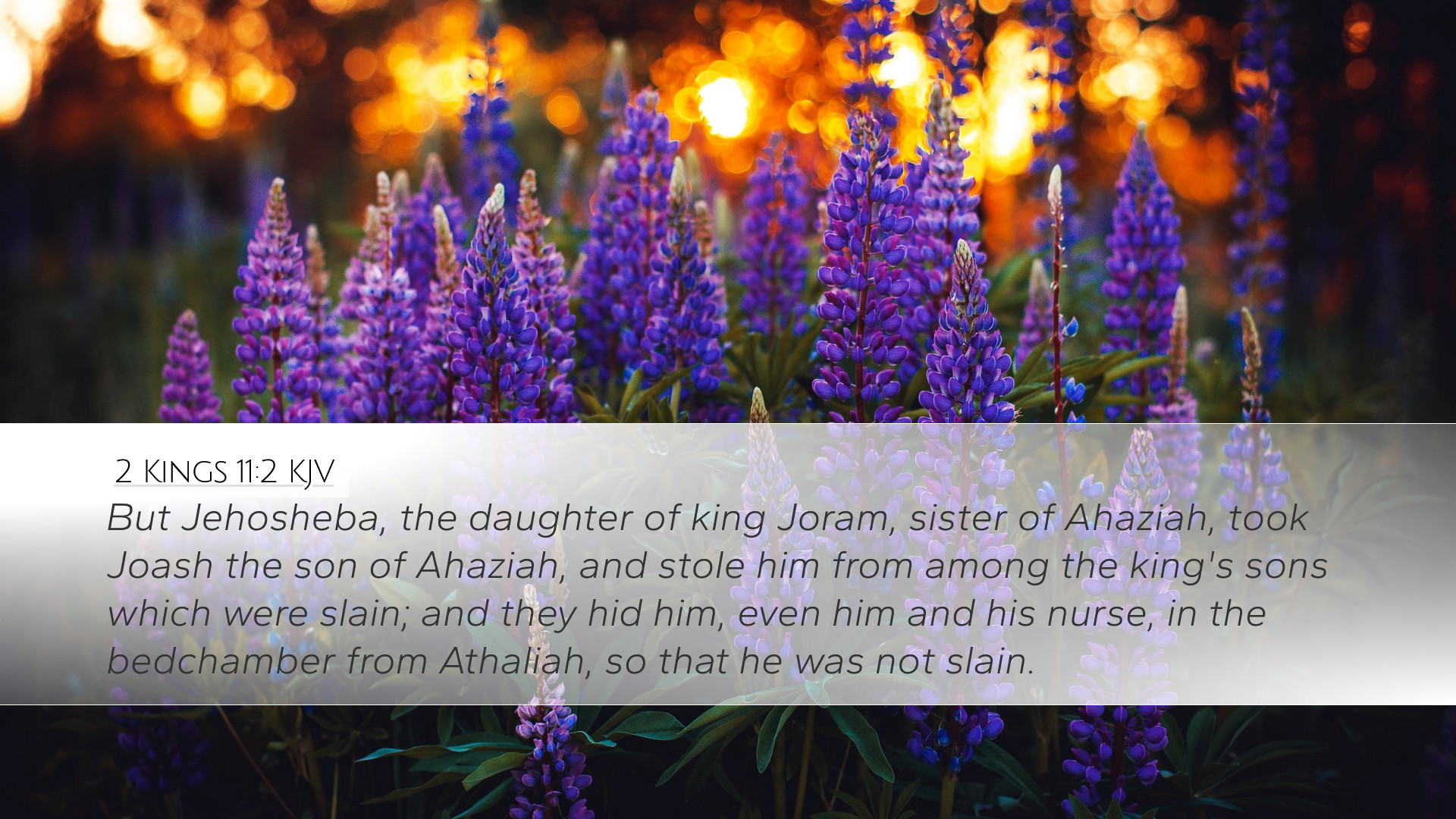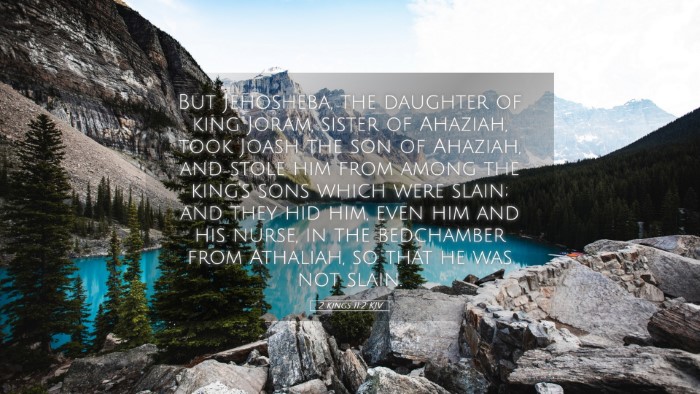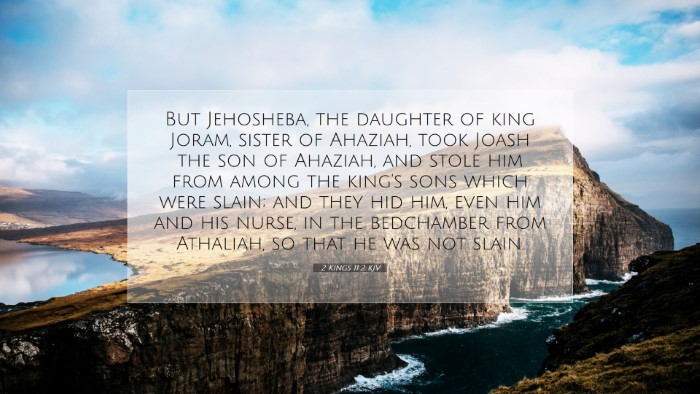Old Testament
Genesis Exodus Leviticus Numbers Deuteronomy Joshua Judges Ruth 1 Samuel 2 Samuel 1 Kings 2 Kings 1 Chronicles 2 Chronicles Ezra Nehemiah Esther Job Psalms Proverbs Ecclesiastes Song of Solomon Isaiah Jeremiah Lamentations Ezekiel Daniel Hosea Joel Amos Obadiah Jonah Micah Nahum Habakkuk Zephaniah Haggai Zechariah Malachi2 Kings 11:2
2 Kings 11:2 KJV
But Jehosheba, the daughter of king Joram, sister of Ahaziah, took Joash the son of Ahaziah, and stole him from among the king's sons which were slain; and they hid him, even him and his nurse, in the bedchamber from Athaliah, so that he was not slain.
2 Kings 11:2 Bible Commentary
Commentary on 2 Kings 11:2
2 Kings 11:2 presents a pivotal moment in the history of Judah, illustrating the themes of divine providence, protection, and the fulfillment of God’s promises. This verse states: "But Jehosheba, the daughter of King Joram, sister to Ahaziah, took Joash the son of Ahaziah, and stole him from among the king's sons that were slain; and they hid him even him and his nurse in the bedchamber from Athaliah, so that he was not slain."
Contextual Background
The context surrounding 2 Kings 11 is one of political intrigue and violence, particularly following the aftermath of Queen Athaliah's rise to power after the death of her son Ahaziah. The bloody coup led by Athaliah, which resulted in the massacre of the royal offspring of the Davidic line, sets the stage for a crucial act of preservation orchestrated by Jehosheba.
Insights from Commentaries
-
Matthew Henry:
Henry emphasizes the remarkable faith and courage of Jehosheba in this narrative. He views her actions as divinely inspired, noting that her desire to save the line of David illustrates God's unwavering commitment to preserve His covenant. Henry remarks on the significance of God's providence working through unexpected figures, highlighting how Jehosheba, as a woman, played a pivotal role in preserving the Davidic lineage.
-
Albert Barnes:
Barnes provides a detailed analysis of the cultural and historical implications of Jehosheba's actions. He notes that Jehosheba, being the daughter of Joram, represents a critical link between the royal house and the prophetic lineage. Barnes also highlights how her strategic hiding of Joash reflects not merely a survival instinct but a belief in God's promise to David that his line would endure. This act of preservation further asserts God’s control over the affairs of humanity.
-
Adam Clarke:
Clarke reflects on the moral implications of the narrative, positing that Jehosheba's rescue operation aligns with a greater ethical calling to protect the innocent and uphold God’s plans. He contrasts the brutality of Athaliah with Jehosheba's bravery and compassion, leading readers to consider the spiritual warfare existing behind earthly powers. Clarke argues that this moment heralds a glimmer of hope for Israel amid chaos and corruption.
Thematic Analysis
Several key themes emerge from 2 Kings 11:2 that are relevant for contemporary readers, especially for pastors and theologians:
-
Divine Preservation:
This verse exemplifies God’s active role in preserving the remnant of His chosen people, which is a recurring theme throughout Scripture. It serves as an encouraging reminder that even in dire circumstances, God’s promises remain intact.
-
Human Agency and Divine Providence:
The actions of Jehosheba illustrate the partnership between divine sovereignty and human responsibility. God's plan is often executed through faithful individuals who respond to His call, suggesting that each believer has a role to play in God’s unfolding narrative.
-
Gender Roles in Salvation History:
Jehosheba’s pivotal role invites a reflection on the critical contributions of women in biblical history. This challenges traditional narratives which often overlook female figures, urging a broader appreciation for their faith and courage.
Conclusion
In conclusion, 2 Kings 11:2 serves as a powerful reminder of God’s faithfulness amidst chaos. The courage of Jehosheba not only illustrates God’s providential care but also emphasizes the importance of each believer in the unfolding drama of redemption. For pastors, students, and scholars, this narrative challenges us to embody the faith and bravery that Jehosheba displayed, trusting in God’s ultimate plans for preservation and restoration.


